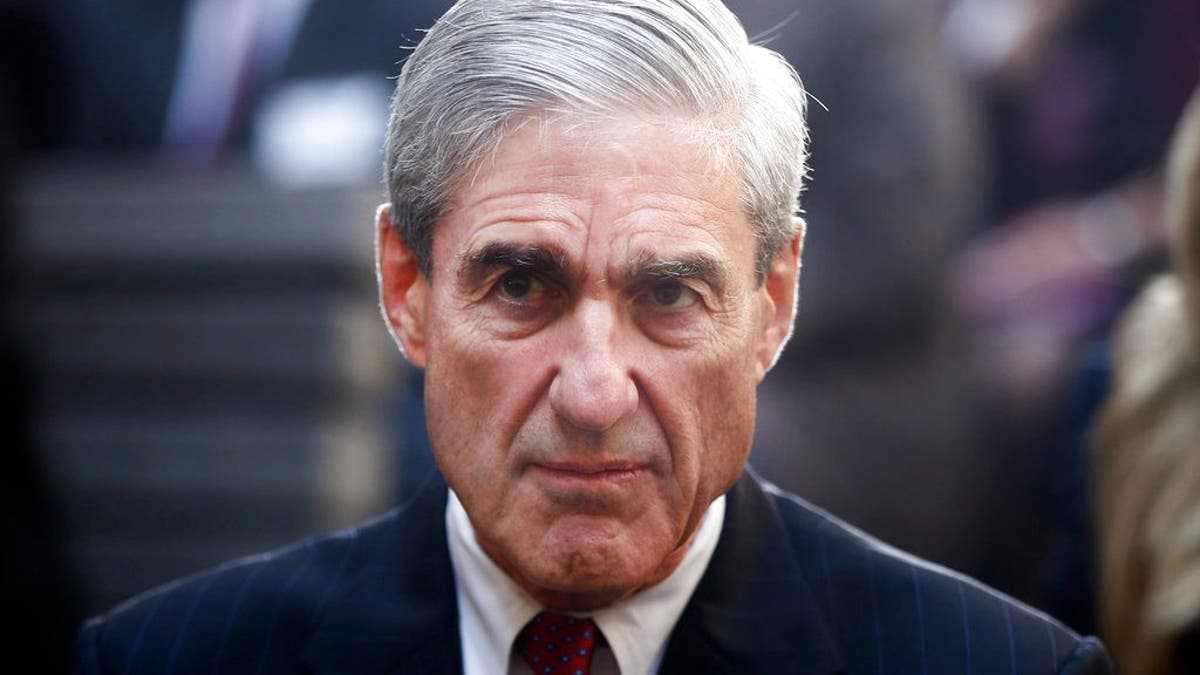
Agents caught exchanging anti-Trump texts previously worked on Robert Mueller's Russia probe. (AP)
Special Counsel Robert Mueller is accused of acting in complete disregard for the law and must be removed. And so, too, must his entire team.
There is devastating new evidence to suggest that Mueller and his staff of lawyers improperly, if not illegally, obtained tens of thousands of private documents belonging to President-elect Trump's Presidential Transition Team (PTT). The material includes emails, laptops and cell phones used by 13 PTT members.
Critically, a "significant volume of privileged material" was taken by Mueller, according to the Trump transition lawyer, and then used by the special counsel team in its investigation. Mueller's staff apparently admits this egregious violation, which the law strictly forbids.
Under the law, the only remedy is Mueller's dismissal from the case.
The Records Are Private
The Presidential Transition Act states that all records of transition operations are private and confidential.
On November 16, 2016, roughly ten days after Trump was elected president, the Chief Records Officer of the U.S. Government sent a letter to all federal agencies reminding them that "the materials that PTT members create or receive are not Federal or Presidential records, but are considered private materials."
Yet Mueller seems to have ignored the law. Without a warrant or subpoena, his team of lawyers brazenly demanded these private records from the General Services Administration (GSA) which held custody of the materials. The GSA does this as a service to all incoming presidents out of courtesy, but it neither owns the documents nor is authorized to release them to anyone under any circumstances because they are deemed entirely private.
If true, Mueller's conduct is not only unethical and improper, it constitutes lawlessness. On this basis, he must be removed and replaced.
Counsel for the Trump Transition Team has sent a letter to Congress alleging the Fourth Amendment was violated in "failing to obtain a warrant for the search or seizure of private property in which the owner has a reasonable expectation of privacy (Coolidge v. New Hampshire, 403 U.S. 443, 489)."
Mueller might contest the claim of an unlawful seizure because the GSA willingly handed over the documents, but this disregards the fact that the GSA broke the law and Mueller surely knew it when he pressured the agency to do so.
Privileged Material
The most serious charge against Mueller is that he obtained, reviewed and used material that is privileged.
For months, Mueller allegedly failed to disclose to the transition team that he acquired these privileged documents. Under the law, he and his lawyers are not entitled to possess or read any of them. Even worse, the transition team says it warned the special counsel six months ago that it had no right to access the records without gaining permission from the PTT.
Courts have clearly stated what prosecutors are supposed to do under these circumstances: "An attorney who receives privileged documents has an ethical duty to cease review of the documents, notify the privilege holder, and return the documents." (Arnold, 2004 U.S. Dist. Lexis 19381, at 30.)
Did Mueller do this? Apparently not. He never notified PTT when his staff of lawyers encountered the privileged documents and he compounded his violation of the law by possessing and accessing them for months.
Only the owner of such materials can waive the privileged that protects them. Since the GSA does not, under the law, own the records, only the transition team can make such a waiver. It did not.
Hence, if any illegally obtained documents have been used in the Trump-Russia case, then the results are tainted and invalid. This is a well-established principle of law.
Mueller Must Be Removed
The use by Mueller of even one privileged document can, and must, result in his disqualification from the case.
Courts have frequently used their supervisory authority to disqualify prosecutors for obtaining materials protected by the attorney-client privilege. (In re Grand Jury Proceedings John Doe #462, 757 F.2d600 Granger v Peyton, 379 F.2d 709, Arnold v. Cargill Inc., No. 01-2086, 2004 U.S. Dist. LEXIS 19381.)
Statutory law also demands Mueller's removal. Pursuant to 5 C.F.R. 2635.501, government employees, including prosecutors, are directed to "take appropriate steps to avoid an appearance of loss of impartiality in the performance of his or her official duties."
The lawyer for the Trump transition team states that the special counsel's office admitted in a telephone conversation on Friday that it failed to use an "ethical wall" or "taint team" to segregate any privileged records. This is often done to keep them isolated from lawyers and investigators involved in the case.
Yet, Mueller did not adopt such precautionary measures. Instead, he apparently allowed his team to utilize the documents while questioning witnesses in the Trump-Russia case.
If true, Mueller's conduct is not only unethical and improper, it constitutes lawlessness. On this basis, he must be removed and replaced.
Given the insular nature of the special counsel operation, it is reasonable to conclude that all the lawyers and investigators likely accessed the privileged documents. Therefore, not just Mueller, but his entire team must be dismissed. This would include Deputy Attorney General Rod Rosenstein who oversees the case.
Either Congress should take aggressive action or the Presidential Transition Team (now Trump for America, Inc.) must petition a federal judge to order their removal.
The integrity of the special counsel probe has been deeply compromised by numerous allegations of corrupt acts. In its current composition, it seems beyond repair.
The original version of this column incorrectly cited a case called "Taylor." The correct case name is "Arnold." A revised citation appears above. Additionally, the Finn case was incorrectly quoted. Additional cases have been cited in support for clarification.








































